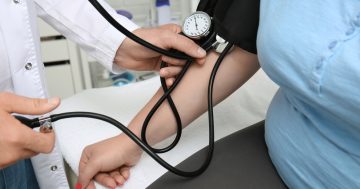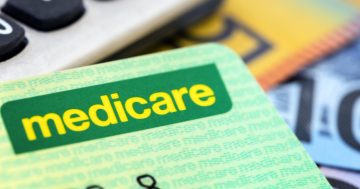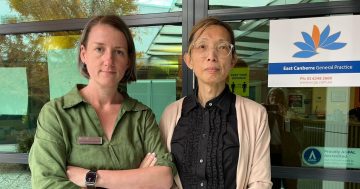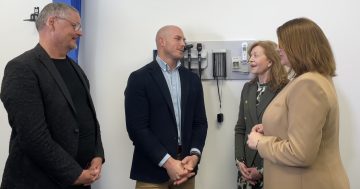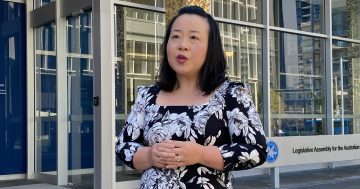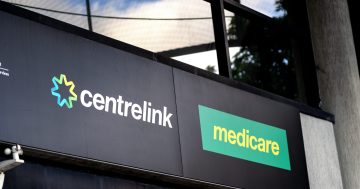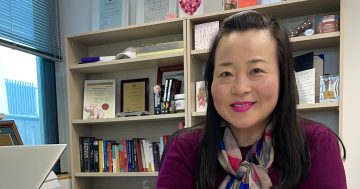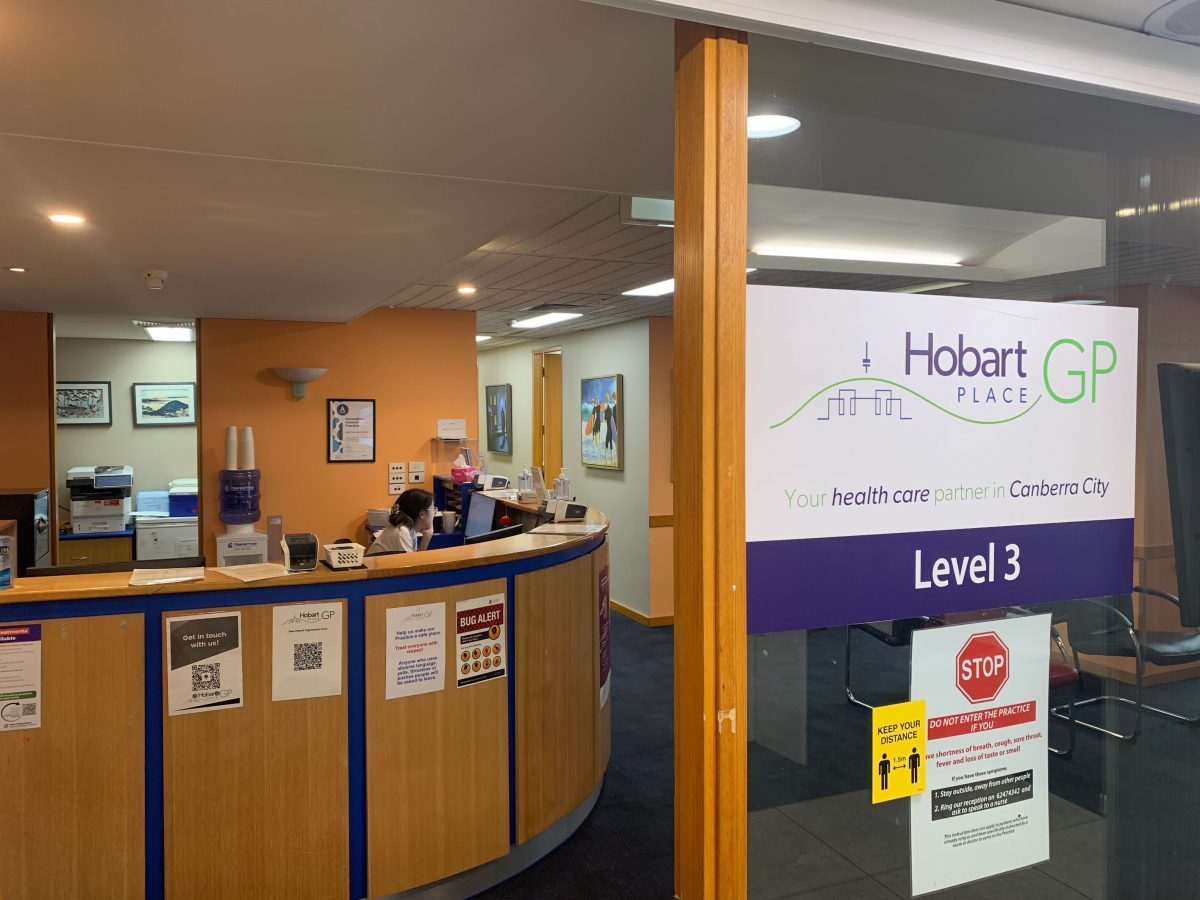
Hobart Place General Practice closed down at the end of April as staff retirements made the practice “financially unviable”. Photo: James Day.
As the cost of living crisis worsens, options for affordable GPs throughout the country have slimmed, especially in Canberra.
Cleanbill’s ‘Health of the Nation Report‘ released in April marked the ACT as the jurisdiction with the lowest bulk-billing rates and highest out-of-pocket costs in the country.
The report outlines data found by Cleanbill, a website that maps out the affordability and availability of GPs across Australia to help users find a GP close to them and within their means.
Founder James Gillespie said that he was inspired to create the platform while at university, when he realised the lack of availability and knowledge of GPs was affecting many of those around him in his hometown of Brisbane.
James started out doing research during the university break, gathering information by calling up GPs in the area and asking for their pricing information. Once he had mapped out all of Brisbane, he kept going.
“Over the 2021 lockdown I taught myself some basic coding and put together the first data collection and refinement programs, which I now use on Cleanbill. Then I got a set of uni students to work as researchers and callers so that we could build the site’s database,” James said.
“In the last eight months of operation, it has become far larger than anything I ever built by myself.
“Our most recent report has captured over 6300 GPs across the country, which to my knowledge is the first comprehensive survey of clinics in Australian history,” he added.
James has now graduated and moved to Canberra to work in the public service, but he’s still trying to broaden Cleanbill’s potential and is seeking out more funding for it.
His goal is to continually update Cleanbill’s data on GPs both on and offline and eventually branch out into other medical services like dentistry, psychology, allied health and specialists.
“While the AMA and RACGP have good policy solutions, they are often six, 12 or 18 months down the road before flowing through to the public,” said James.
“That can leave a lot of people with a feeling of despair as though they’re in this system that keeps getting worse and just have to cop it.
“This is why I made Cleanbill: we’re free, online and anyone can use it. Whether you’re a GP who wants to log your existence, or a patient just trying to find a doctor.”
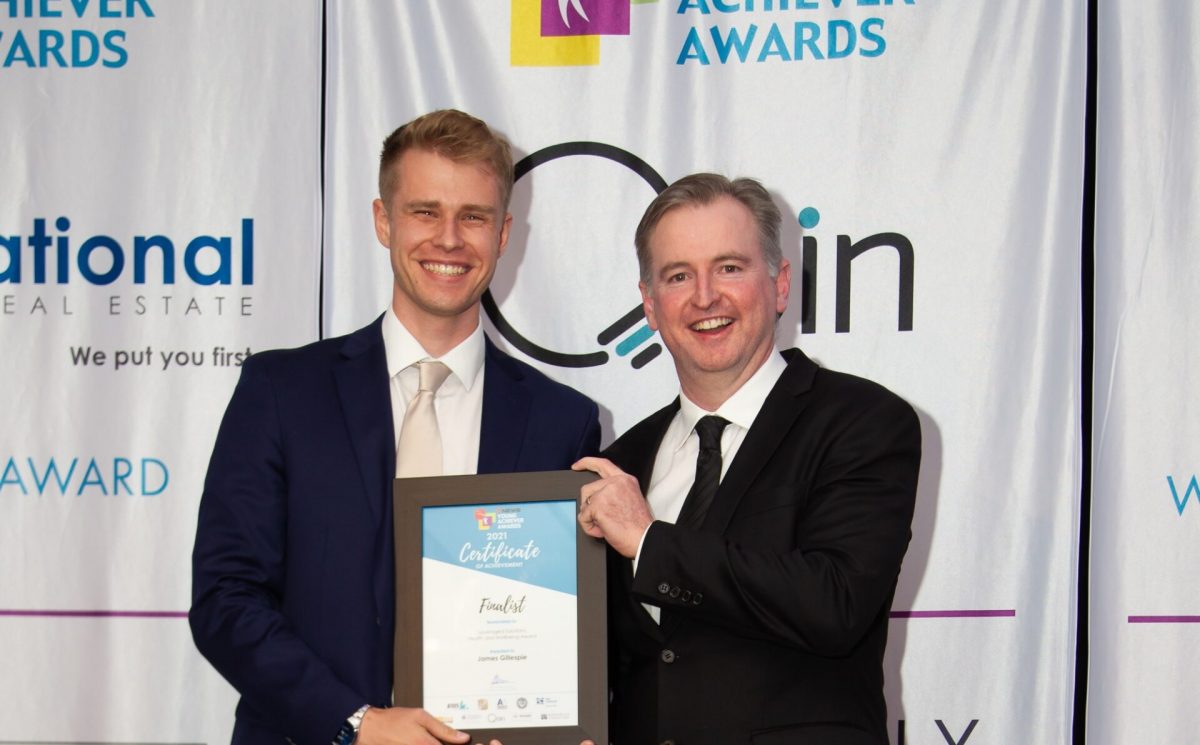
James Gillespie receiving his award as one of the Queensland Young Achiever finalists. Photo: Awards Australia.
Platforms like Cleanbill that help patients find affordable GPs are becoming more important as the number of bulk-billing practices continues to fall, particularly in the ACT. The freeze on Medicare rebates and rising registrar training fees are two factors that have weighed heavily on GPs across the country and resulted in some practices being forced to close.
Hobart Place General Practice (HPGP), which closed its doors in April, was one of the practices that had become “financially inviable”. In a statement issued by HPGP, it said “several of our doctors were planning to retire in the middle of the year and we have been unable to retain our GP registrar”, which meant it could no longer stay open. The practice added that “the erosion in value of the Medicare rebate” brought added pressure and difficulties.
Practice Manager Dr Clara Tuck Meng Soo now operates East Canberra General Practice which, like HPGP and the Interchange Health Co-Op (IHCO) that she helped set up, takes a non-judgemental approach to healthcare.
“We were prepared to see anybody,” Dr Soo said. “Under this model we would bill the people who didn’t have a concession card and bulk-bill those who did have one, however over the years we were seeing more people at a disadvantage.”
These patients often had drug dependencies and were finding it increasingly difficult to access care from other GPs, who Dr Soo said were labouring under the same financial pressures and found it too difficult to continue working with them.
While the IHCO continued this financial model, HPGP, like other practices, followed suit as the high costs forced it to slowly limit its bulk-billing services.
Dr Soo said that at the start of her career she worked for a practice that bulk-billed all patients and was happy seeing just three patients an hour, as “there wasn’t any worry about getting enough money into our pocket”. Now, she said, bulk-billing practices “have to see six to seven patients an hour”.
With workflow demands this high, Dr Soo says many younger GPs are wary of applying to work at bulk-billing practices, and she hopes that the government will step in to discuss with GPs about how they can provide a network of care for disadvantaged groups as the number of affordable clinics continues to shrink.
“I see the ACT government pouring a lot of money into walk-in clinics, which are electorally popular and good for treating minor conditions, but they don’t really provide care for people who have chronic illnesses or complex health needs.
“If government doesn’t work out how to provide for these people they are going to end up flooding the emergency departments, which is what we’re already seeing and it’s only going to get worse.”
More information about Cleanbill can be found on its website.












